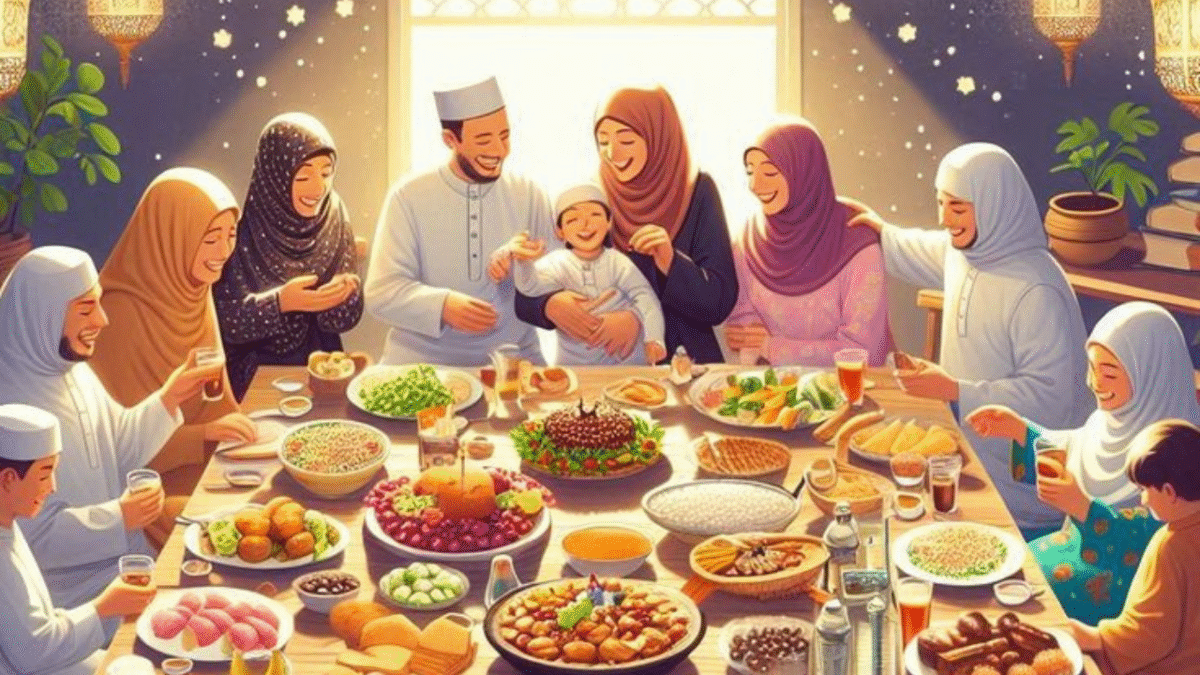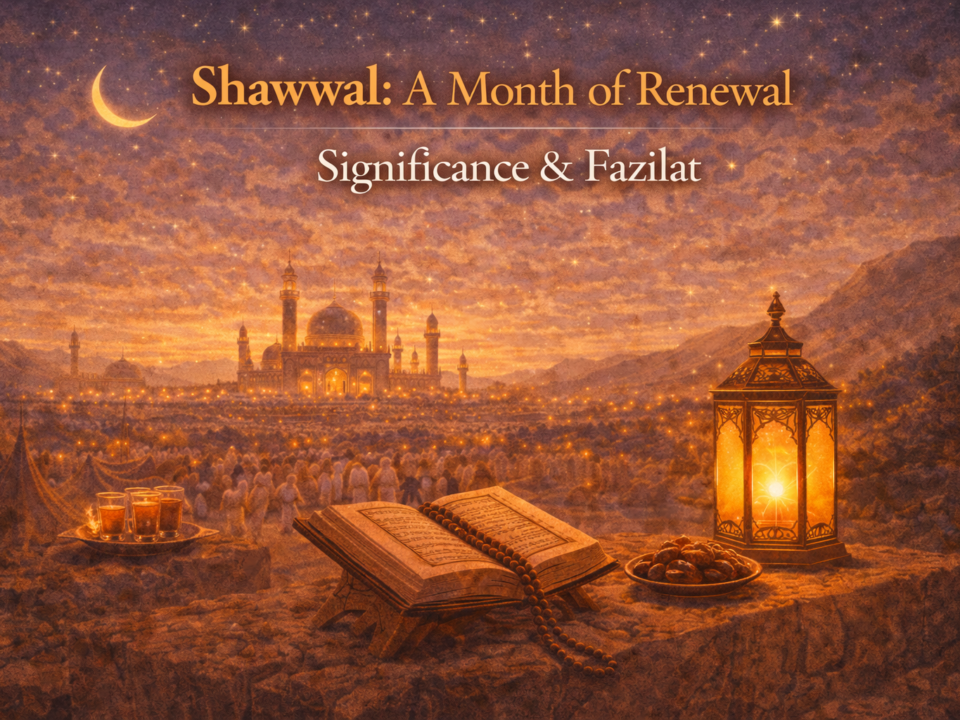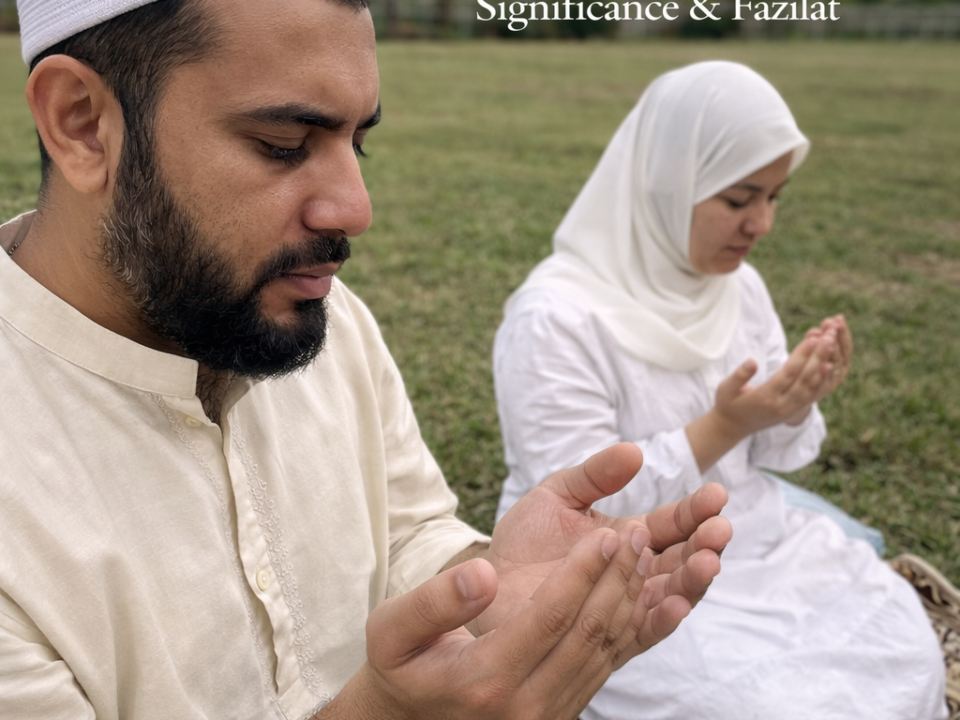Iftar ka Tareeqa aur Sunnat ka Amal
Importance of Iftar in Islam
Ramadan is a blessed month filled with fasting during the day and spiritual reflection at night. The moment of iftar — breaking the fast — holds a special place in Islam. It is not just about eating after long hours of hunger and thirst; it is about fulfilling a Sunnah, reviving the prophetic way, and experiencing blessings at the time when Allah accepts the prayers of the fasting person.The Prophet Muhammad ﷺ said: “The fasting person has two joys: the joy of breaking his fast, and the joy when he meets his Lord.” (Sahih Bukhari, Sahih Muslim). This hadith highlights the spiritual happiness and divine reward attached to iftar.Another important teaching is not to delay iftar unnecessarily. The Prophet ﷺ encouraged Muslims to hasten in breaking their fast once the sun sets, as this is a Sunnah and a source of blessing.Sunnah Way of Iftar
Hadith References on Iftar
Numerous hadith highlight the method and spirit of iftar. The Prophet ﷺ said: “People will remain upon goodness as long as they hasten to break the fast.” (Sahih Bukhari).This shows that following the Sunnah method of iftar is not only about eating but also about preserving the goodness of the Ummah.Breaking Fast with Dates and Water
The Sunnah is to break the fast with fresh dates. If dates are not available, then dry dates can be used. If even those are unavailable, then one should break the fast with water.Anas ibn Malik (RA) reported: “The Messenger of Allah ﷺ used to break his fast with fresh dates before praying. If there were no (fresh dates), then with dry dates, and if there were none, he would take a few sips of water.” (Sunan Abu Dawood).Dua of Iftar
When breaking the fast, it is recommended to recite the Sunnah supplication:Arabic: اللَّهُمَّ إِنِّي لَكَ صُمْتُ وَبِكَ آمَنْتُ وَعَلَيْكَ تَوَكَّلْتُ وَعَلَى رِزْقِكَ أَفْطَرْتُTransliteration: Allahumma inni laka sumtu wa bika aamantu wa ‘alayka tawakkaltu wa ‘ala rizqika-aftartu.English Meaning: “O Allah! I fasted for You, I believe in You, I rely upon You, and with Your provision, I break my fast.”This dua connects the physical act of eating with the spiritual purpose of fasting, reminding us that every blessing comes from Allah.Spiritual Virtues of Iftar
Iftar is more than the end of a day’s fast — it is a time of mercy, blessings, and answered prayers. The Prophet ﷺ said that the dua of the fasting person is not rejected at the moment of iftar. This is why Muslims are encouraged to make heartfelt supplications at that time.Breaking fast according to Sunnah also carries immense reward. It revives the prophetic tradition, strengthens one’s connection with Allah, and brings tranquility to the soul.Iftar also symbolizes gratitude. After hours of patience and restraint, the believer tastes food and water with a deeper appreciation, realizing how many blessings they enjoy daily.Healthy & Recommended Iftar Foods
While Sunnah emphasizes simplicity, modern nutrition also teaches us the importance of healthy food at iftar. Overeating or consuming harmful foods may harm the purpose of fasting.What to Eat at Iftar
- Dates: Rich in natural sugars, quickly restore energy.
- Water: Essential for rehydration after long hours without drinking.
- Fruits: Such as watermelon, oranges, or bananas, which replenish vitamins and minerals.
- Soup: Light on the stomach and helps digestion.
- Yogurt: Soothes the stomach and aids hydration.
What to Avoid at Iftar
- Deep-fried foods: Cause heaviness and indigestion.
- Excess sugar: Leads to energy crashes.
- Cold fizzy drinks: Harm digestion and dehydrate the body.
- Overeating: Defeats the purpose of fasting by causing laziness instead of gratitude.
Social and Family Bonding in Iftar
Iftar is not only an individual act but also a time to strengthen bonds. The Sunnah of eating together is highly recommended. Families should sit together, make dua collectively, and share food with neighbors and the needy.Community iftars at mosques create unity and brotherhood among Muslims. Charity iftars for the poor carry immense reward. The Prophet ﷺ said: “Whoever gives food to a fasting person to break his fast, he will have a reward like theirs, without it detracting from their reward in the slightest.” (Tirmidhi).This shows that feeding others at iftar multiplies blessings and strengthens the Muslim community.Taj Company & quraan.pk Ramadan Resources
Taj Company, a trusted name in publishing Qurans and Islamic books, provides a wide range of Ramadan resources. On quraan.pk, you can explore:- Authentic Qurans in multiple translations and scripts.
- Ramadan gift packs including tasbih, itr, and prayer essentials.
- Special editions of Qurans for family reading during Ramadan.
Conclusion — Living Ramadan with Sunnah Iftar
Iftar is not just the act of eating after sunset; it is a deeply spiritual moment filled with blessings, Sunnah practices, and divine acceptance. By following the Sunnah method — breaking fast with dates and water, reciting the prescribed dua, and making heartfelt supplications — Muslims revive the tradition of the Prophet ﷺ.When combined with healthy food choices and family bonding, iftar becomes a source of both physical strength and spiritual growth.As you embrace Ramadan 2025, let your iftar reflect both gratitude and Sunnah. Explore resources on quraan.pk and Taj Company’s Quran collections to make your fasting journey more rewarding and spiritually uplifting.Read more :Sehri ki Ahmiyat aur us ke FazailFAQs
The Sunnah dua is: “Allahumma inni laka sumtu wa bika aamantu wa ‘alayka tawakkaltu wa ‘ala rizqika-aftartu” — meaning “O Allah! I fasted for You, believed in You, relied upon You, and break my fast with Your provision.”
The Sunnah is to break the fast immediately after sunset, without unnecessary delay. This brings barakah (blessing) and follows the prophetic tradition.
Yes, it is Sunnah to break fast with fresh dates, or dry dates if fresh ones are unavailable. If no dates are present, then water is used.
Get started
Related
Related posts
February 9, 2026
February 9, 2026
February 9, 2026




